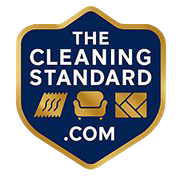Finally, a thread I can actually contribute to...
I'm a car detailer. A seriously OCD car detailer. Water spots are not acceptable. So I did what any OCD detailer would do: spent a couple hundred hours reading up on hard, soft, and de-ionized water. I use de-ionized water for detailing. You'll see why here in a sec.
Water is considered "hard" when it has a large amount of dissolved minerals (mineral ions) in it. When water is "softened" by a typical sodium ion exchange softener (all of the softening units that use salt are sodium ion exchange softeners), the water comes out with more sodium in it proportional to how hard the water was going in. Yeesh, that sounded confusing...Look at it this way... every mineral ion is exchanged for a sodium ion. So the harder the water going in, the more sodium it'll have in it coming out. Detailers hate this, cause sodium leaves white spots when it dries. But if you live in a place where the water isn't that hard to start with, it's not that big of a deal, since the water won't have much sodium in it after it has been softened. Sodium ion exchange softening is cheap, but you do have the sodium issue, if it matters to you.
Just to be clear.... let's say we run a gallon of water through a sodium ion exchange water softener. As this gallon of water goes in, it has 100 mineral ions and 0 sodium ions in it. When it comes out the other side of the softener, it'll have 0 mineral ions in it, and 100 sodium ions in it.
So what's the alternative? De-ionized water. Filters that use a de-ionizing resin will remove the mineral ions, and produce "soft" water without the sodium. So what's the catch? The resin can't be re-charged using salt the way that a sodium ion exchange softener can. The resin *can* be recharged, but requires the use of both muriatic acid and sodium hydroxide. Not fun. The resin is also pretty expensive.
The other way to get de-ionized water is with a Reverse Osmosis system. These units are pretty expensive to buy, but cheap to use.
Utah has some of the hardest water in the country. It's damn near chewy. Using a sodium ion exchange softener here produces water with a ton of sodium in it. I use a CRSpotless (crspotless.com) to de-ionize the water I use for car washing. It's not cheap, but it works very well. If (when) I get my CC business going, I'm going to get a reverse osmosis system to fill the van's fresh water tank every night. Using our hard water on carpet results in really stiff carpet when it dries.
Well, that's probably more about hard/soft water than you wanted to know. Sorry.

Edit: Sheesh, i got so wound around the axle talking about water that I forgot to post this web site:
http://www.pwgazette.com/ They have small (and large) sodium ion exchange (they can be re-charged using salt) softening cartridges that will work with a garden hose. Much cheaper than buying a complete home water softening system, these filters/cartridges are perfect for filling your van's fresh water tank. After you fill the van's tank, remove the filter cartridges from their housings, chuck them in a five gallon bucket full of water and rock salt, and they'll be ready to fill the van up again in about twenty minutes or so.

